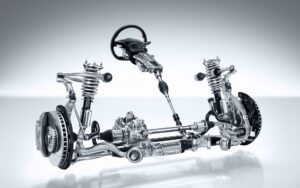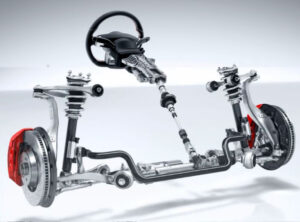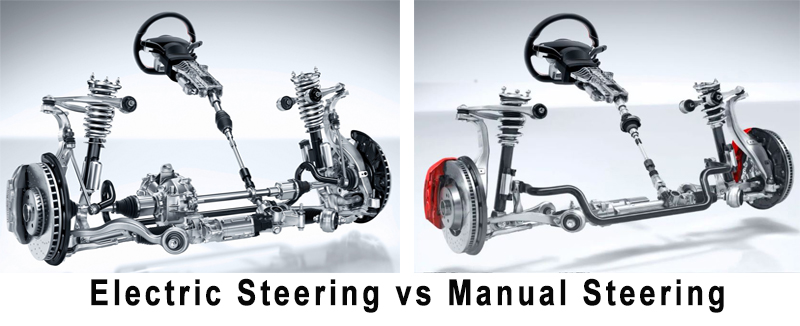When it comes to vehicle control, the choice between electric steering and manual steering plays a crucial role in driving comfort, efficiency, and performance. Modern vehicles are increasingly equipped with electric steering systems for enhanced handling and convenience. But how does electric steering work, and how does it compare to traditional manual steering? Let’s explore the differences and determine which option best suits your driving needs.
What is Electric Steering?
An electric steering system, also known as Electric Power Steering (EPS), replaces the hydraulic power steering system with an electric steering motor. It operates using an electric motor that provides steering assistance based on vehicle speed and driver input.
 Key Components of an Electric Steering System:
Key Components of an Electric Steering System:
- Electric steering rack – The mechanism that translates steering input into wheel movement.
- Electric steering column – Connects the steering wheel to the steering system.
- Electric power steering pump – Assists in providing steering force.
- Sensors and controllers – Detect driver input and adjust motor assistance accordingly.
What is Manual Steering?
A manual steering system relies solely on physical effort to turn the wheels. It does not include an electric steering pump or hydraulic assistance, making it a simpler but more demanding system.
 Electric Steering vs Manual Steering – Key Differences
Electric Steering vs Manual Steering – Key Differences
| Feature | Electric Steering | Manual Steering |
|---|---|---|
| Ease of Use | Provides effortless steering | Requires physical effort |
| Fuel Efficiency | More efficient as it reduces engine load | No additional power consumption |
| Maintenance | Requires electric power steering fluid in some models | Minimal maintenance needed |
| Cost | More expensive due to advanced components | Cheaper and simpler design |
| Customization | Allows for electric steering conversion | Limited flexibility |
Does Electric Steering Have Fluid?
Unlike hydraulic power steering, electric power steering typically does not require fluid, making it a low-maintenance option. However, some hybrid systems may still use a small amount of fluid.
Is an Electric Steering Conversion Worth It?
Many car owners are now opting for an electric steering conversion to enjoy smoother handling and fuel savings. If you have a vehicle with manual or hydraulic steering, upgrading to an electric power steering kit can improve your driving experience.
Final Thoughts
Both electric steering and manual steering have their pros and cons. If you prioritize ease of driving, efficiency, and modern technology, electric power steering is the way to go. However, if you prefer a more traditional, low-maintenance setup, manual steering remains a reliable choice. To explore more vehicle options, check out our online inquiry form today!













